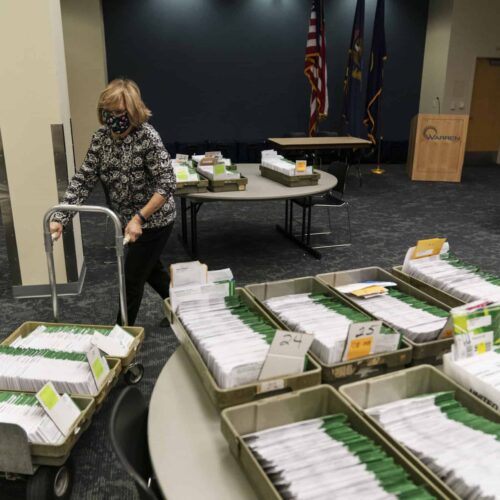This story was originally published by Stateline.
Introduction
Many states this year are allowing early processing of ballots to deal with the historically high number of absentee, early in-person, and hand-delivered votes.
The states that changed their procedures this year include Maine and South Carolina (which have hotly contested U.S. Senate races) and the presidential battleground of Michigan (but only for cities of over 25,000 population and only one day before Election Day), as well as Connecticut, Maryland, Massachusetts and New Hampshire.
Many other states had early processing procedures in place before the COVID-19 crisis hit.
However, presidential battleground states Pennsylvania and Wisconsin have not changed their procedures and will not begin the process until Election Day. That could delay results in those states, as poll workers may be overwhelmed with record-setting numbers of early ballots. Attempts by some state lawmakers to change the date when processing could begin did not make it through state legislatures.
In some states that start the process early, election workers can open envelopes, check signatures and smooth out ballots for counting machines. A few states even allow the ballots to be fed into tally machines early. But in those states, the results are either not tallied or not revealed until the polls close.
Early voting has broken all records nationwide, with 98.9 million votes coming in before Election Day, 71% of the entire 2016 total.
Read more in Money and Democracy
Barriers to the Ballot Box
The painful, winding path toward a more perfect union
Democracy is in peril. But it’s not too late to turn the tide.

Join the conversation
Show Comments